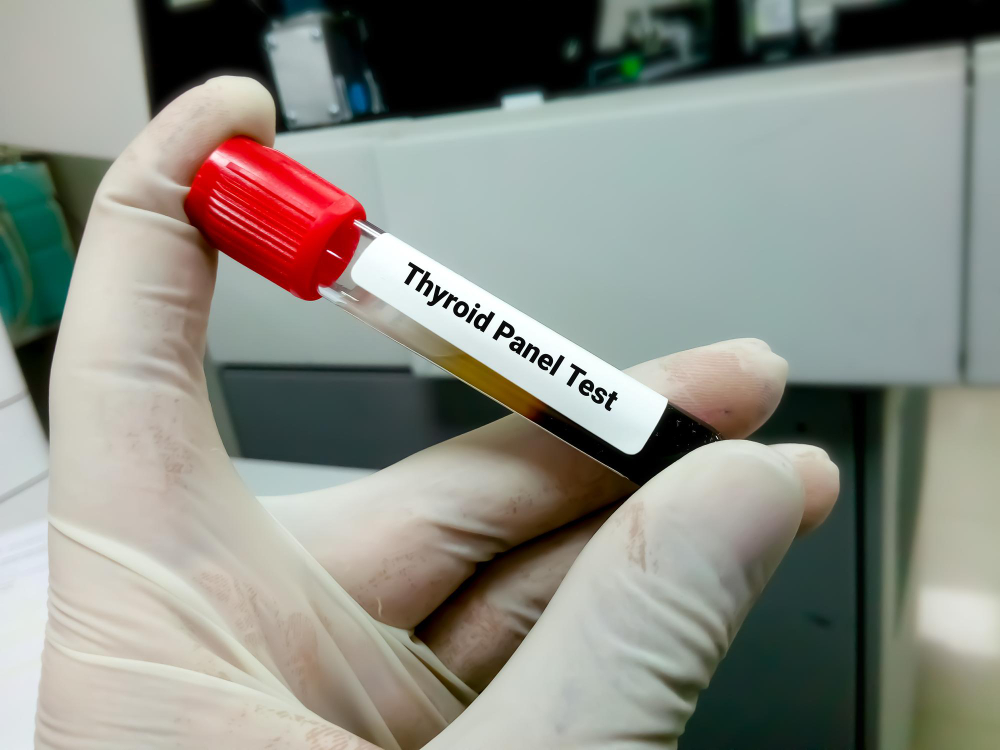Understanding your body’s health is crucial. The thyroid gland plays a big part in your overall well-being. Even though it’s small and shaped like a butterfly, it does critical tasks. It helps control your body’s energy by producing hormones that regulate metabolism. In simple terms, it keeps the energy levels in check, making sure they’re neither too fast nor too slow.
However, many people are noticing problems with their thyroid function nowadays. Some might not realize the connection between feeling off and their thyroid health. Because of this, it’s essential to learn more about checks like the thyroid panel test explained. These tests help spot any issues early on. By understanding when to take these tests and their importance, you can manage your health better.
Being proactive about health is always better. By focusing on thyroid health, you’re taking a big step towards overall wellness. Understanding what affects your thyroid and how to test for it is important. The more you know, the better you can manage your health. So, let’s dive deeper into understanding more about what is a thyroid panel test.
Demystifying Thyroid Function and the Thyroid Panel Test
The thyroid gland sits at the base of your neck. It might be small, but it plays an enormous role in how your body works day-to-day. Think of it as the body’s energy manager. It produces hormones that keep things running smoothly: your body temperature stays normal, your heart rate is stable, and your food digests properly. Without it, things can go awry.
The thyroid panel test explained is a simple blood test. Doctors recommend it to check how well your thyroid is doing its job. People who want a better grasp of their health can benefit from thyroid testing for beginners.
Here’s what doctors usually look for with this test: – TSH (Thyroid-Stimulating Hormone): This indicates if your body is making enough thyroid hormones. – Free T4: This is the main hormone your thyroid makes, showing the level of hormones available. – Free T3: Another essential hormone, which provides energy. – Thyroid antibodies: These signal if the body’s immune system is mistakenly attacking your thyroid.
Understanding these components is pivotal. When you know when to get a thyroid panel test—especially when you feel certain symptoms—you can avoid many issues. Sometimes, these tests can catch problems early on, making treatment smoother.
The importance of thyroid screenings shines when faced with thyroid-related issues. Identifying problems early on can make a huge difference in treatment and daily wellness. It allows for ongoing health maintenance. Thus, getting this test isn’t just about finding problems—it’s an active approach to staying healthy.
The Integral Role of Thyroid Testing in Preventive Healthcare
Your body might give you hints when something’s off. Feeling unusually tired? Or maybe restless? These subtle signs could mean a thyroid issue. Weight changes and energy dips are also common. Paying attention to these signs is vital. You might not always link them to thyroid problems, but they could signal the perfect time for a thyroid panel test explained. Knowing when to get a thyroid panel test can save you a lot of health complications later.
Untreated thyroid imbalances can affect your well-being in many ways. They can even lead to more severe concerns if not addressed. That’s where testing comes into play.
Who should consider these tests? Well, anyone with a family history of thyroid issues or people who fall into risk categories should check it out. If you’re unsure, regular thyroid testing for beginners might be wise.
By keeping regular tabs on your thyroid health, you can catch changes early. Timely intervention through proper thyroid panel test preparation and management could prevent long-term health problems. Consider the test as a part of your routine check-up to ensure everything’s working as it should.
Interpreting Results and Embracing Thyroid Health
Getting a test done is the first step. Understanding the results is just as important. So, what do you do when you receive your thyroid panel test results? Knowing what the numbers mean can help you take action.
A normal result suggests everything is functioning well. If your results show imbalances, don’t panic. Various steps can be taken based on the outcome. Sometimes, more tests might be needed to pinpoint specific issues.
If results indicate a problem, you might need medication or lifestyle changes. Regular check-ups and adjustments can make living with thyroid issues manageable. Staying informed is empowering. You’ll feel more in control of your health when you engage in discussions with healthcare providers.
A proper understanding of the importance of thyroid screening and subsequent steps ensures you’re ready. Insight into ongoing management not only preserves health but enhances it.
Embrace these conversations and see them as opportunities to learn. With the right steps, managing and understanding thyroid health can be straightforward. Remember, knowledge is key in this journey. When you know your body better, you’re equipped to maintain and safeguard your health efficiently.

